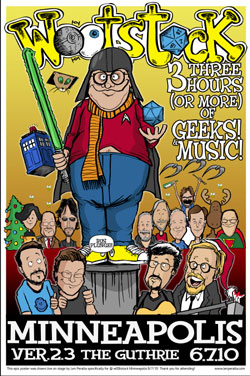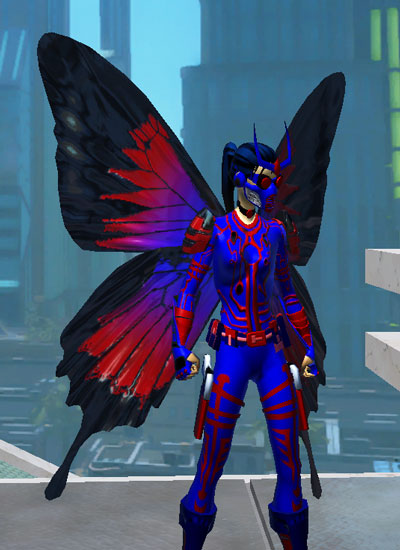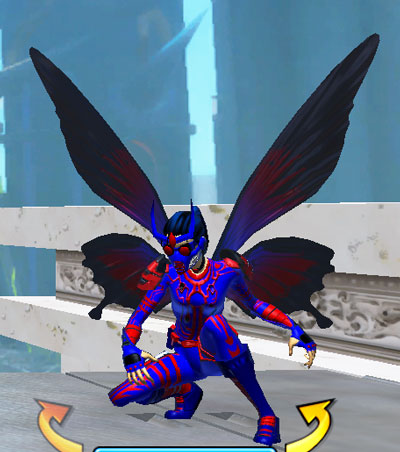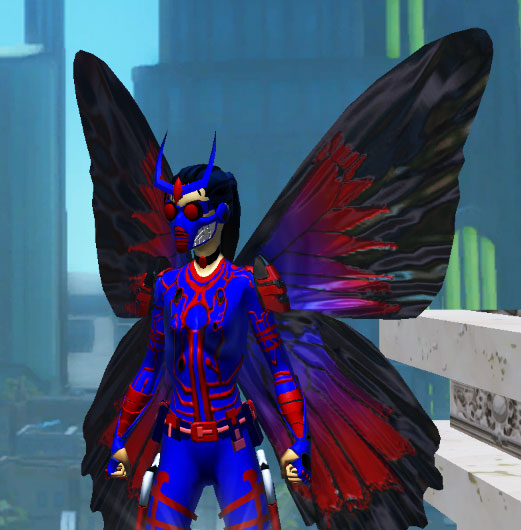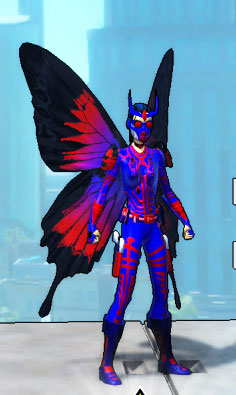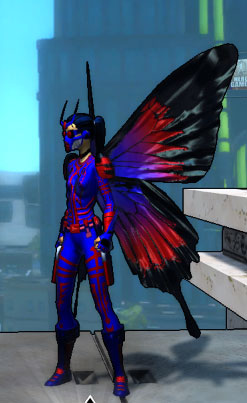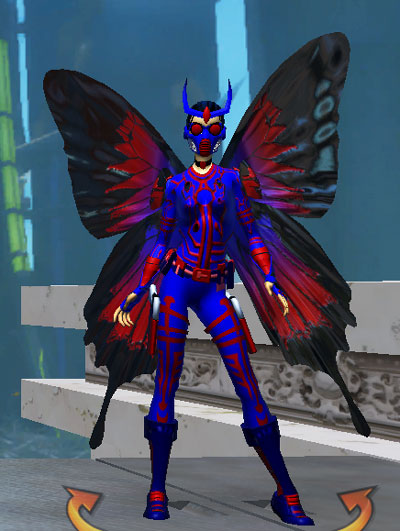An interesting conversation took place in the comic book world over the past week. It started when Eric Powell, creator of the award winning comic The Goon, posted a video criticizing the lack of genre diversity in comics. I’d post it here, but he’s since taken it down, presumably because either because it wasn’t particularly well argued or because it wasn’t particularly well presented. Jill Pantozzi has a summation of the video here, as well as her own thoughts on it. Here are some commentaries on it: Scott McCloud, Van Jensen, and Tom Spurgeon. There were also conversations comic news/commentary sites: one on Comic Alliance, and several on The Beat.
I’m less interested in examining the video itself (I think it wasn’t well argued or presented, myself). However, I did post my thoughts about the follow up conversations on The Beat, and I’m cross-posting them here.
1: In which I discuss the emerging digital download market which the video completely ignored as a commercial outlet and the realities of making a living off your art
I expect the growth in the digital download market will spur growth for drama comics, simply because drama is more satisfying in larger chunks; there’s a reason sitcoms are thirty minutes and television dramas are an hour, after all. Comedy has the edge in webcomics, just like it does on the newspaper comics page. Drama comics can get by on the web (Family Man, YU+ME: dream, Sailor Twain, World of Hurt, Zahra’s Paradise), but the daily joke rules that side of the business.
Digital downloads have enough format differences from floppies, trades, and webcomics to make them the preferred format for an under-exploited audience. Since that audience will expect them to come out on a floppy or trade time-period, expect drama to dominate the format just like it does in the direct market. As there’s no shelf space limit like there is in the direct market, expect the independent stuff to dwarf the Big 2, Archie, and Disney. The tech to create and deliver the work just doesn’t require a big corporate middle man to hold the bag. The only advantage a big corporate middle man might have is in building a big enough digital storefront for costumers to randomly browse through. Even then, any creator that doesn’t also sell his digital downloads off his own website to cut the middleman out of selling to the creator’s hardcore fanbase is an idiot.
Will digital downloads be enough by themselves? Probably not, but comics by themselves never were. Newspaper comics, webcomics, and comic books have ads. All three have trades that repackage the content in books that doesn’t have ads. All three merchandise (suction cup Garfield for your window, Fat Pony T-shirts, and Wolverine action figures). All three license to the other, bigger, riskier, more profitable mass mediums (Peanut holiday specials, Batman movies, Penny Arcade video games) which is where you actually hit the lottery with your work. Sure, Harry Potter level success in books will you a millionaire, but Harry Potter movies and merchandising is what it takes to make you the second richest woman in England.
The marketing for most direct market comics, even from the Big 2, is bad. The profits margins aren’t there for something much better than what a one person creator can manage in the internet age. A determined and patient creator can create more marketing for himself now than ever before. It won’t be overnight. In fact, usually takes years, but we are talking about creators who intend to do this for their entire life, right?
While you’re struggling, keep your day job. If you’re already in the direct market, there’s no reason why shouldn’t stay in it while you build up your own creator owned works that you can sell again and again and again, year after year, as floppies and trades and webcomics and digital downloads.
I keep running into these unrealistic expectations that finding more audience in a new format should happen instantaneously, instead of being the backbreaking work making your living off your art always is. Is it the fact that artists have an actually, marketable skill out of college that is useful in the business world that skews these conversations on these direct market specialization sites? The awards for best new novelists usually go to people in their THIRTIES. Actors are disgustingly hit and miss in their cash flow, no matter how successful they might have been in the past. Sniveling in public that you might have to lower yourself to get a paycheck to keep pursuing your preferred projects is really annoying to some of us coming from those backgrounds. Making money from doing something creative is tough, and building a new business from scratch takes time and effort. Just be glad that it’s easier now than when Jeff Smith and Dave Sim started theirs – or when Scott Kurtz and Fred Gallagher started theirs. (Fun fact – Fred Gallagher? His webcomic Megotokyo is the only one whose trades are published by DC or Marvel, and his last volume came out under the DC Comics imprint itself. And it’s a drama webcomic. It was the only title to survive DC killing the CMX line. Know why it survived? Because the trades were too profitable for DC to just drop it. The collections of a comic you can read on the internet for free were too profitable for one of the Big 2 to let go. The future is now, kids.)
Oh, and only 300 million people? If you’re only aiming for America when talking about delivering content on the internet, you’re aiming too small.
2: In which I discuss the recent markets for mass media and how they impact comics
If we’re going to talk the history of money in comics, we have to include the fact that comics are a mass medium and competing with every other mass media for the time and money of a limited audience (6 billion+ people big but still finite). In the direct market era, we’ve had two new mass media mature, video games (now the same size as the movie industry) and the internet (hi there!). I’m not going pretend I have the numbers at my fingertips, but I’m guessing there’s a strong correlation between the rise of those industries and the decline in direct market sales. There has certainly been one reported between their rise and the subsequent decline of television. Video games just steal time and money, which makes it tougher for those in the older media. The internet has been something else.
Like video games, internet has been another time and money sink for consumers. However, it has also opened up new distribution channels for content sellers, like people making comics. We’ve seen the webcomics side of the industry grow from strips put up for fun to having a solid cadre of full time professionals. Here’s the Wikipedia list  for those that missed it on the other thread. Add in the many, many semi-pros on the net, some of whom will eventually be pros, and we start reaching numbers matching the number of comic creators in the newspapers.
I know there are some that like to claim that making it on the web is like hitting the lottery in terms of the odds. They’re absolutely right. However, the odds making a living doing comics in newspapers (Peanuts or Garfield), magazines (Mad Magazine or New Yorker), or the direct market (Batman or Cerebus) are every bit as bad. If you’re making your living doing comics, it’s because you worked hard enough to get enough lottery tickets to have a real chance of earning a living wage. Maybe you wrote regularly to the comic’s letter page. Maybe you carried your portfolio to cons year after year. Maybe you had an internship at one of the publishers’ offices. Maybe you got a lot of rejection letters. However you did it, it was no less work that the process of assembling an audience one by one on the web. Yes, there is an element of luck involved, but work can do a great deal to shrink those odds to something manageable, assuming you have the talent to create something worth the audience’s time.
Now digital downloads are adding another distribution channel for comics, and it’s in a format that should work well for the same types of creators that enjoy working in the direct market. Heck, it should even carry the Big 2 as the direct market and book stores continue to contract.
Contract, not disappear. If hardbacks, trade paperbacks, and mass market paperbacks for novels can exist side by side for decades despite being the exact same product in only slightly different packaging, then that suggests packaging as different as floppies and trades and webcomics and digital downloads will all have audiences that will support them.
Collectors and floppy fetishists will keep that format going, but it will be increasingly dominated by older titles and titles tested first as mini-series by the Big 2 in the digital market that are then relaunched with a first issue to catch the direct market’s attention. Independent creators will abandon the direct market for digital downloads, unless they are floppy fetishists themselves.
To extent they work with the direct market, independents will ship trades collecting their digital work. The webcomic guys already do. Oh, some are ignoring it and selling their trades just by their websites and at cons, but some are paying the price of splitting money with a publisher to get into the direct market and book store distribution channels. Turning my head, I can see five different webcomic books on my shelf with Dark Horse on the spine, one from IDW, and one from Archaia. Digital downloads are nice, but they’re hit and miss as gifts and you can’t read them in the tub.
The relationship between digital downloads and webcomics will depend on the content. If it is drama, the webcomic side will probably be only modestly profitably but will drive consumers to buy downloads they can read comfortably away from their clunky PCs. If it is comedy, downloads will be driven by those that want to own the files for the strips or want to reread them comfortably away from the internet or their PCs.Â
That ownership is pretty important, since there’s no guarantee that the website for the comic will be up forever. Cloud storage has its place in computing, but it doesn’t actually replace having a file on hardware in your own possession. DRM on the downloads has a similar problem when the specifics of the format encryption becomes unsupported because of business failures and software changes. However, at least if you have the file in your possession, someone on the internet will eventually figure out how to jailbreak it.
Or, if you’re like me, you’ll just wait the publishers out like I did the music industry. Dear publishers: I don’t care if your business fails – I won’t buy from you if you have DRM. Yours won’t be the first creative endeavor to abruptly stop, and I got plenty of independent creators to fill the void you left behind.
Okay, that’s the best I can do for where we’ve been and where I think we’re going without writing an entire book. I just get wound up by those who think their little sliver of the market is the whole business of art and commerce, and then compound their error by seeming to be oblivious to the fact that their little sliver used to be different in the past.
